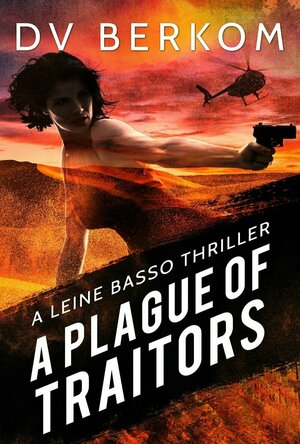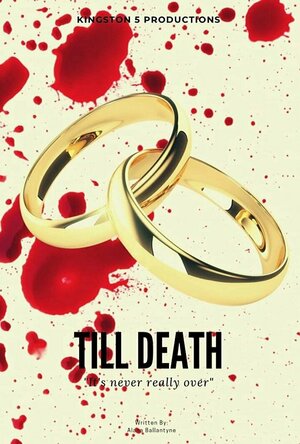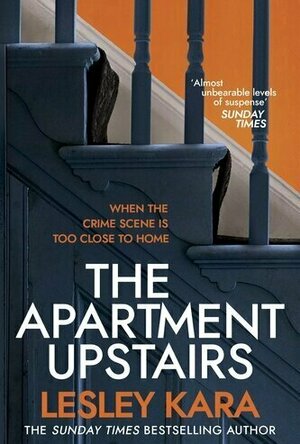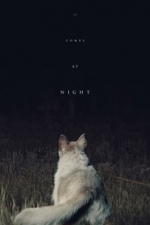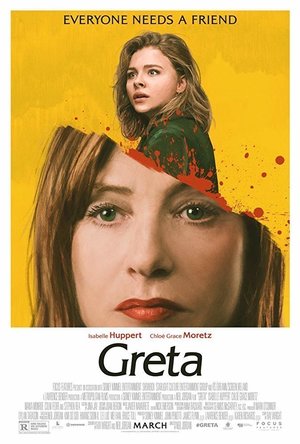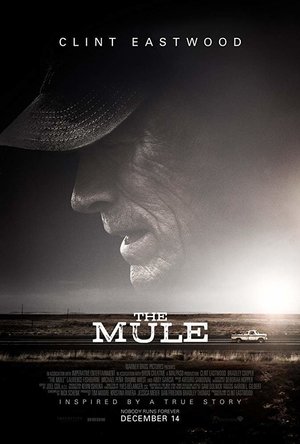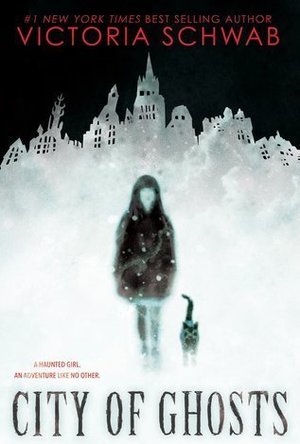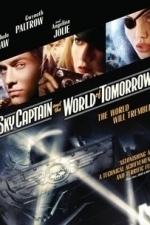Search
Search results
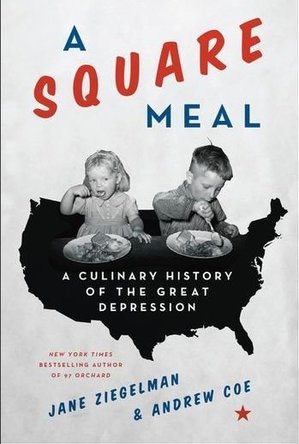
A Square Meal
Book
James Beard Foundation Book Award Winner From the author of the acclaimed 97 Orchard and her...
Great depression FDR food history
Hazel (2934 KP) rated A Plague of Traitors (Leine Basso #11) in Books
Aug 22, 2021
I have made no secret that I am a fan of D.V. Berkom's work and particularly of her books starring Leine Basso but you would think that after so many stories it would become stale. Well let me tell you that this is most certainly not the case. D.V. Berkom has a gift of creating plausible and exciting situations that keep me coming back every single time.
Once again, I have run out of words to describe how much I enjoyed this book so will just say that it is yet another action packed thriller full of tension that will have you turning the pages at quick speed (or tapping the screen!).
D.V. Berkom has a knack of creating excellent characters and this book is absolutely littered with them from the good guys to the not-so-good. Leine has to be one of my favourite characters of all time - she is strong, brave, not afraid to kick rear ends but with a soft side that is endearing and feels natural and believable.
This is part of a series but, in my opinion, it holds up extremely well as a stand-alone. There are recurring characters, and I am pleased to see the return of Derek, but the author has the ability to provide just enough information so you don't get lost but not so much that it detracts from the current story.
Yet again, this is another hit for me and I would recommend this and the rest of the series to anyone who loves a thrilling read that although contains violence, it's not over the top.
I, for one, cannot wait for the Leine's next "adventure" but I must thank D.V. Berkom for allowing me to be a member of her Advance Reader Team and for sending me a copy of "A Plague of Traitors" before the official publication date on 31-August-2021 in return for an honest, unbiased and unedited review for which I am, once again, extremely grateful.
Once again, I have run out of words to describe how much I enjoyed this book so will just say that it is yet another action packed thriller full of tension that will have you turning the pages at quick speed (or tapping the screen!).
D.V. Berkom has a knack of creating excellent characters and this book is absolutely littered with them from the good guys to the not-so-good. Leine has to be one of my favourite characters of all time - she is strong, brave, not afraid to kick rear ends but with a soft side that is endearing and feels natural and believable.
This is part of a series but, in my opinion, it holds up extremely well as a stand-alone. There are recurring characters, and I am pleased to see the return of Derek, but the author has the ability to provide just enough information so you don't get lost but not so much that it detracts from the current story.
Yet again, this is another hit for me and I would recommend this and the rest of the series to anyone who loves a thrilling read that although contains violence, it's not over the top.
I, for one, cannot wait for the Leine's next "adventure" but I must thank D.V. Berkom for allowing me to be a member of her Advance Reader Team and for sending me a copy of "A Plague of Traitors" before the official publication date on 31-August-2021 in return for an honest, unbiased and unedited review for which I am, once again, extremely grateful.
LeftSideCut (3776 KP) rated Till Death (2021) in Movies
Oct 6, 2021
Contains spoilers, click to show
Till Death is a pretty middle-of-the-road thriller that somehow manages to both benefit and suffer from its no-nonsense approach to, well everything really. On the one hand, it's premise is an enticing one - after finding out about her affair, Emma's (Megan Fox) husband leads her out to a remote cabin under the false pretense of an anniversary getaway, handcuffs the two of them together by the wrists, and proceeds to shoot himself, leaving her attached to his dead body and fighting for her life when two hitmen come by to finish the job. This setup leads to a decent amount of tension, it's snowy setting exacerbating her survival conditions.
There aren't really any twists or turns to be had, and everything plays out fairly predictably, and quite honestly, it wouldn't work as well without the cast attached to it. Megan Fox has proved with vehicles such as Jennifer's Body that she is more than capable to lead a horror flick with style, and Till Death cements that fact. Her character is pretty badass, and Fox gives us a protagonist that's worth rooting for. On the flip side, the two hitmen-brother actors are great as well. Callan Mulvey in particular cuts an imposing figure as the movies main villain.
The narrative flirts with deeper context here and there but sadly never pulls the trigger. Mulvey's character is a person from Emma's past, having mugged her some years ago. The plot clearly spells out that there was motive behind this, but never explores this aspect, leaving a frustrating and unexplained story thread. The relationship between the brothers is interesting also, and at one point threatens to present a dilemma in who to side with, but again, it never actually goes there, and as such, reeks of a wasted opportunity for a far more interesting story than the one presented.
For what it is though, Till Death is a competent and entertaining enough thriller/horror to add to a spooky season watchlist
There aren't really any twists or turns to be had, and everything plays out fairly predictably, and quite honestly, it wouldn't work as well without the cast attached to it. Megan Fox has proved with vehicles such as Jennifer's Body that she is more than capable to lead a horror flick with style, and Till Death cements that fact. Her character is pretty badass, and Fox gives us a protagonist that's worth rooting for. On the flip side, the two hitmen-brother actors are great as well. Callan Mulvey in particular cuts an imposing figure as the movies main villain.
The narrative flirts with deeper context here and there but sadly never pulls the trigger. Mulvey's character is a person from Emma's past, having mugged her some years ago. The plot clearly spells out that there was motive behind this, but never explores this aspect, leaving a frustrating and unexplained story thread. The relationship between the brothers is interesting also, and at one point threatens to present a dilemma in who to side with, but again, it never actually goes there, and as such, reeks of a wasted opportunity for a far more interesting story than the one presented.
For what it is though, Till Death is a competent and entertaining enough thriller/horror to add to a spooky season watchlist
Hazel (2934 KP) rated The Apartment Upstairs in Books
Jul 24, 2022
Let me give you a piece of advice; if you have never read one of Lesley Kara's books, get yourself to your usual book supplier or library and put it right by picking yourself one (or more!) You will not regret it because each and every one is unique and enthralling and The Apartment Upstairs is no different.
This is yet another cracker by Lesley Kara.
Would you want to live in a house where a beloved family member was brutally murdered? I don't think I could but Scarlett is clearly stronger than I am. Not only has she moved back into her flat beneath where her Aunt Rebecca was murdered by her partner who then committed suicide, but she is having to organise the funeral and manage the debilitating condition, ME (Myalgic Encephalomyelitis).
Dee is the owner of the 'alternative' funeral directors Scarlett contacts to make arrangements for her aunt's funeral. Dee has struggles of her own; as well as her own personal circumstances, her best friend went missing almost 10 years ago and she is organising an event to keep her in the public consciousness.
Little do Scarlett and Dee realise but their lives are going to become intertwined in the most unexpected and shattering way.
There is creeping sense of tension and unease from the very beginning which continues throughout and which had me gripped desperate to know what was going to happen but I definitely didn't see that ending coming ... and what a great ending it is!
With strong characters, a good pace and an engaging and enthralling plot that had me guessing, this is a book that I devoured quickly and one which I have no hesitation in recommending to those who enjoy a character-driven, gripping thriller.
Thanks go to Random House UK, Transworld Publishers and NetGalley for enabling me to read The Apartment Upstairs and share my views.
This is yet another cracker by Lesley Kara.
Would you want to live in a house where a beloved family member was brutally murdered? I don't think I could but Scarlett is clearly stronger than I am. Not only has she moved back into her flat beneath where her Aunt Rebecca was murdered by her partner who then committed suicide, but she is having to organise the funeral and manage the debilitating condition, ME (Myalgic Encephalomyelitis).
Dee is the owner of the 'alternative' funeral directors Scarlett contacts to make arrangements for her aunt's funeral. Dee has struggles of her own; as well as her own personal circumstances, her best friend went missing almost 10 years ago and she is organising an event to keep her in the public consciousness.
Little do Scarlett and Dee realise but their lives are going to become intertwined in the most unexpected and shattering way.
There is creeping sense of tension and unease from the very beginning which continues throughout and which had me gripped desperate to know what was going to happen but I definitely didn't see that ending coming ... and what a great ending it is!
With strong characters, a good pace and an engaging and enthralling plot that had me guessing, this is a book that I devoured quickly and one which I have no hesitation in recommending to those who enjoy a character-driven, gripping thriller.
Thanks go to Random House UK, Transworld Publishers and NetGalley for enabling me to read The Apartment Upstairs and share my views.
Lee (2222 KP) rated It Comes At Night (2017) in Movies
Jul 14, 2017
Tension packed, slow burner
I headed into ‘It Comes At Night’ in a similar way to when I saw ‘Get Out‘ a few months back – having seen a lot of positive four or five star buzz about it on my news feeds, but without actually seeing the trailer. I skimmed a couple of reviews this time, just to get a rough idea of what I was in for, and one of the words which seemed to crop up on a number of them was ‘unsettling’. Well, that sold it for me! Get Out is my favourite movie of the year so far, and I felt that my enjoyment of seeing that had been greatly improved having not seen the trailer, and with no expectations. So, I went into ‘It Comes At Night’ hoping for a similar experience.
The opening scene sets the tone for what’s to come. A sick old man listens to his daughter Sarah tell him she loves him. She’s wearing a protective gas mask, as are her husband and son. Husband Paul and son Travis then take grandpa out of the cabin they’re in, into the woods where they proceed to wrap him up in a sheet, shoot him in the head, roll him into a ditch and set fire to him. It becomes apparent that we’re in a post apocalyptic world where some kind of plague has taken hold, and Grandpa had unfortunately become infected. We’re not shown any TV news footage, we don’t hear any radio broadcast of any kind and there aren’t any zombies or infected people wandering around. There’s just this small family, out in the middle of nowhere and with no idea what state the rest of the world is currently in or how bad things are. They keep their cabin boarded up, with only one locked door for entry. They lead a lonely, basic existence, taking no chances with whatever is going on out in the rest of the world.
And then one night they’re awoken by somebody breaking in downstairs. A man who claims he thought the place was empty. He claims to be only out scavenging for water for his family. His name is Will and he says that he’s left his wife and young son behind some 50 miles away and is only interested in providing for them. Paul and his family don’t know whether to believe him and this feeling of uncertainty, paranoia and tension is something which takes hold and continues throughout the entire movie. Not knowing if Will is infected or not, they tie him to a tree overnight to see if infection sets in. When it doesn’t, they come to an understanding and agree to go and get Wills family and bring them back to the safety of the cabin. The family seem to integrate well, falling in line with Pauls strict routine of eating, washing and going to the toilet, and all seems to be going well for a while.
Sadly, I think the expectation of an experience similar to ‘Get Out’ affected my overall enjoyment of the movie. Sure I was tense and on edge for pretty much the whole movie, but I guess I was expecting it all to build up to something much more. It did reach a pretty intense finale of sorts, but then it just seemed to fizzle out until the credits rolled and a sense of overall disappointment set in. I don’t think I was the only one either. As I stood to leave the cinema, the guy across the aisle from me, along with a couple of others seated nearby, all kind of looked at each other in disbelief and with a ‘WTF?!’ expression. It was definitely a good movie, which deserves to be seen, but it just didn’t leave that much of a lasting impression on me.
The opening scene sets the tone for what’s to come. A sick old man listens to his daughter Sarah tell him she loves him. She’s wearing a protective gas mask, as are her husband and son. Husband Paul and son Travis then take grandpa out of the cabin they’re in, into the woods where they proceed to wrap him up in a sheet, shoot him in the head, roll him into a ditch and set fire to him. It becomes apparent that we’re in a post apocalyptic world where some kind of plague has taken hold, and Grandpa had unfortunately become infected. We’re not shown any TV news footage, we don’t hear any radio broadcast of any kind and there aren’t any zombies or infected people wandering around. There’s just this small family, out in the middle of nowhere and with no idea what state the rest of the world is currently in or how bad things are. They keep their cabin boarded up, with only one locked door for entry. They lead a lonely, basic existence, taking no chances with whatever is going on out in the rest of the world.
And then one night they’re awoken by somebody breaking in downstairs. A man who claims he thought the place was empty. He claims to be only out scavenging for water for his family. His name is Will and he says that he’s left his wife and young son behind some 50 miles away and is only interested in providing for them. Paul and his family don’t know whether to believe him and this feeling of uncertainty, paranoia and tension is something which takes hold and continues throughout the entire movie. Not knowing if Will is infected or not, they tie him to a tree overnight to see if infection sets in. When it doesn’t, they come to an understanding and agree to go and get Wills family and bring them back to the safety of the cabin. The family seem to integrate well, falling in line with Pauls strict routine of eating, washing and going to the toilet, and all seems to be going well for a while.
Sadly, I think the expectation of an experience similar to ‘Get Out’ affected my overall enjoyment of the movie. Sure I was tense and on edge for pretty much the whole movie, but I guess I was expecting it all to build up to something much more. It did reach a pretty intense finale of sorts, but then it just seemed to fizzle out until the credits rolled and a sense of overall disappointment set in. I don’t think I was the only one either. As I stood to leave the cinema, the guy across the aisle from me, along with a couple of others seated nearby, all kind of looked at each other in disbelief and with a ‘WTF?!’ expression. It was definitely a good movie, which deserves to be seen, but it just didn’t leave that much of a lasting impression on me.
Haley Mathiot (9 KP) rated Once Dead, Twice Shy (Madison Avery, #1) in Books
Apr 27, 2018
Madison Avery doesn't believe in fate—until a combination of fate and free will brings her to live with her dad (which her mom thinks is a good thing for her since she can't stay out of trouble at home), gets her a pity-date ("you got your boss to get his son to ask me out? what?"), and kills her (at her junior prom. On her seventeenth birthday. of all the luck.). Now, after having claimed the amulet of the timekeeper who killed her (which is the only thing that keeps her looking like she's alive), she has to learn how to live with death. If that's even possible.
But the dark timekeeper who killed her isn't happy, because she's got his amulet, and she's not all the way dead (just sort of dead). Teaming up with Barnabas—who may or may not be a fallen angel—and the light time keeper, Chronos (or Ron for short), a guardian angel (who she forces to guard someone else) and enlisting the human help of her ex-prom date Josh (who she didn't realize she had a crush on), she has to attempt to save her soul.
All in a day's work for a dead high-schooler… right?
This was the second time I've read Once Dead, Twice Shy. I still can't figure out what the title means. Whatever it means, it was a pretty exciting book. There wasn't a second of "down-time." Madison was always up to something, learning something, running to—or from—something, or saving someone. Every chapter had little pieces of the puzzle, and the way it all fit together at the end, was priceless, hilarious, and promising.
I will say that I don't like where the story picks up. I think Harrison should have actually included the beginning of the story, where she gets killed. I read it before I read this book and I would have been rather lost without it. It was a short story included in Prom Nights from Hell. I don't care if this is technically a "book 1" in the series. It should have been book 2, or at least had the beginning of the story included in it.
I really liked Madison. I liked her character (though not some of her choices—but hey, if I was a dead seventeen year old trying to keep her dad from knowing that she could bend time, I probably would have made those same choices) and I liked her interior monologue. She was serious enough to be nerve-wracking and exciting, but sarcastic enough to give everything a touch of comic relief. I really didn't like Josh in the short prequel to this book, but as his character began to be more clear, I really started to like him. I hope things turn out well between him and Madison. I would have liked a little more romantic tension between them, but what was there was clean and innocent—a little too innocent for Madison Avery.
I don't particularly like Kim Harrison's writing style. It's very casual, it has those dreaded fragments, and it's nothing out of the ordinary. However, her way of describing both physical images and emotional feelings was very good, and I could see everything, hear everything, and feel everything her characters were experiencing. As I mentioned above, I liked the comic relief. I also liked her lack of language through the story. Madison had her own set of "words" and phrases that she used that weren't offensive in any way, and it made the story much more enjoyable. However, the only word I can think of to describe her writing is mediocre, and that and the lack of tension between Madison and Josh are the only reasons I don't give this book five stars.
Content: clean of language, violence, and sexuality of any kind. Thank you Harrison, for writing clean YA fiction!
Recommendation: Ages 12+ to lovers of sci-fi, fantasy, and general YA fiction.
This review is copyright Haley Mathiot and Night Owl Reviews.
But the dark timekeeper who killed her isn't happy, because she's got his amulet, and she's not all the way dead (just sort of dead). Teaming up with Barnabas—who may or may not be a fallen angel—and the light time keeper, Chronos (or Ron for short), a guardian angel (who she forces to guard someone else) and enlisting the human help of her ex-prom date Josh (who she didn't realize she had a crush on), she has to attempt to save her soul.
All in a day's work for a dead high-schooler… right?
This was the second time I've read Once Dead, Twice Shy. I still can't figure out what the title means. Whatever it means, it was a pretty exciting book. There wasn't a second of "down-time." Madison was always up to something, learning something, running to—or from—something, or saving someone. Every chapter had little pieces of the puzzle, and the way it all fit together at the end, was priceless, hilarious, and promising.
I will say that I don't like where the story picks up. I think Harrison should have actually included the beginning of the story, where she gets killed. I read it before I read this book and I would have been rather lost without it. It was a short story included in Prom Nights from Hell. I don't care if this is technically a "book 1" in the series. It should have been book 2, or at least had the beginning of the story included in it.
I really liked Madison. I liked her character (though not some of her choices—but hey, if I was a dead seventeen year old trying to keep her dad from knowing that she could bend time, I probably would have made those same choices) and I liked her interior monologue. She was serious enough to be nerve-wracking and exciting, but sarcastic enough to give everything a touch of comic relief. I really didn't like Josh in the short prequel to this book, but as his character began to be more clear, I really started to like him. I hope things turn out well between him and Madison. I would have liked a little more romantic tension between them, but what was there was clean and innocent—a little too innocent for Madison Avery.
I don't particularly like Kim Harrison's writing style. It's very casual, it has those dreaded fragments, and it's nothing out of the ordinary. However, her way of describing both physical images and emotional feelings was very good, and I could see everything, hear everything, and feel everything her characters were experiencing. As I mentioned above, I liked the comic relief. I also liked her lack of language through the story. Madison had her own set of "words" and phrases that she used that weren't offensive in any way, and it made the story much more enjoyable. However, the only word I can think of to describe her writing is mediocre, and that and the lack of tension between Madison and Josh are the only reasons I don't give this book five stars.
Content: clean of language, violence, and sexuality of any kind. Thank you Harrison, for writing clean YA fiction!
Recommendation: Ages 12+ to lovers of sci-fi, fantasy, and general YA fiction.
This review is copyright Haley Mathiot and Night Owl Reviews.
Lucy Buglass (45 KP) rated Greta (2019) in Movies
Jun 20, 2019
Trust No One
It felt like I’d been waiting an eternity for Greta, and the suspense was killing me. I’d seen plenty of feedback from those who attended TIFF, and the trailer had played before so many films I’d seen in the cinema. The concept had intrigued me from day one, as I find myself very drawn to thrillers such as this one. Being stalked is a very real, very genuine fear, and it’s that sense of realism that makes it so terrifying.
The film follows widowed, lonely Greta (Isabelle Huppert) as she befriends Frances (Chloe Grace Moretz) when she returns her handbag that was left on the New York Subway. The two form a bond rather quickly, but things take a sinister turn when Frances realises Greta is harbouring a dark secret. As it happens, this handbag was planted by Greta, who lay in wait hoping someone would bring it back to her. Unfortunately for Frances, she did.
Despite the fact the trailer for Greta spoils some key moments, it was still an incredibly gripping watch. The lead characters are very well acted, and I have significant praise for Isabelle Huppert, whose performance absolutely blew me away. The way she shifts from a kind, friendly old lady into a cold, deceptive psychopath is incredible to witness. As the titular character and film’s antagonist, she absolutely steals the show and the audience starts to fear her just as much as Frances. No one knows what she’s going to do next.
Chloe Grace Moretz’ character Frances is bubbly and kind, which ultimately leads to her downfall in the hustle and bustle of Manhattan. She is originally from Boston, and moved in with her friend following the death of her mother. Frances is haunted by this incident, which Moretz portrays convincingly throughout the film. She is a very likeable character, which makes her encounter with Greta so much scarier. I was rooting for her throughout, not wanting any harm to come to such a kind-hearted person.
Unfortunately for Frances, her kindness makes her very naïve, which is why she is initially so trusting of Greta. Her flat mate Erica (Maika Monroe) is much more street smart, even if she is a little annoying, and Frances makes the mistake of not listening to her warnings. When Frances finds a bag she thinks of returning it, when Erica finds one, she calls the bomb squad. The two have very different attitudes when it comes to life in the Big Apple.
Despite having some slow moments, it’s the performances given by these three leading ladies that made the film so enjoyable for me. They have very different backgrounds and attitudes, constantly clashing with each other and creating some great tension throughout. Greta will stop at nothing to win the affections of Frances, causing her to do some truly disturbing and almost unspeakable things.
The film knows how to give you that sense of dread, even when you know Greta is elsewhere, you can’t help but anticipate her round every corner Frances turns. This is a testament to the film’s camerawork, which purposely hides certain areas from the viewer, keeping you on edge throughout. The use of shadows and darkness helps with this too. Once Greta’s intentions are revealed, you don’t feel safe. However exaggerated and unrealistic they may be, they definitely make for an entertaining thriller.
It’s a solid thriller with a runtime of 1 hr 38 minutes, enough to provide sufficient exposition and amp up the tension when it needs to. Whilst it isn’t the strongest thriller I’ve seen, it is entertaining throughout and doesn’t need to rely on excessive violence in order to make its point. The film is certainly elevated by the character of Greta, who has quickly gone up in my list of favourite female villains. The film’s plot is completely and utterly crazy, but an enjoyable day out at the cinema nonetheless. This is the first Neil Jordan film I’ve seen, and I must say, I’m impressed.
https://lucygoestohollywood.com/2019/04/23/trust-no-one-my-thoughts-on-thriller-greta/
The film follows widowed, lonely Greta (Isabelle Huppert) as she befriends Frances (Chloe Grace Moretz) when she returns her handbag that was left on the New York Subway. The two form a bond rather quickly, but things take a sinister turn when Frances realises Greta is harbouring a dark secret. As it happens, this handbag was planted by Greta, who lay in wait hoping someone would bring it back to her. Unfortunately for Frances, she did.
Despite the fact the trailer for Greta spoils some key moments, it was still an incredibly gripping watch. The lead characters are very well acted, and I have significant praise for Isabelle Huppert, whose performance absolutely blew me away. The way she shifts from a kind, friendly old lady into a cold, deceptive psychopath is incredible to witness. As the titular character and film’s antagonist, she absolutely steals the show and the audience starts to fear her just as much as Frances. No one knows what she’s going to do next.
Chloe Grace Moretz’ character Frances is bubbly and kind, which ultimately leads to her downfall in the hustle and bustle of Manhattan. She is originally from Boston, and moved in with her friend following the death of her mother. Frances is haunted by this incident, which Moretz portrays convincingly throughout the film. She is a very likeable character, which makes her encounter with Greta so much scarier. I was rooting for her throughout, not wanting any harm to come to such a kind-hearted person.
Unfortunately for Frances, her kindness makes her very naïve, which is why she is initially so trusting of Greta. Her flat mate Erica (Maika Monroe) is much more street smart, even if she is a little annoying, and Frances makes the mistake of not listening to her warnings. When Frances finds a bag she thinks of returning it, when Erica finds one, she calls the bomb squad. The two have very different attitudes when it comes to life in the Big Apple.
Despite having some slow moments, it’s the performances given by these three leading ladies that made the film so enjoyable for me. They have very different backgrounds and attitudes, constantly clashing with each other and creating some great tension throughout. Greta will stop at nothing to win the affections of Frances, causing her to do some truly disturbing and almost unspeakable things.
The film knows how to give you that sense of dread, even when you know Greta is elsewhere, you can’t help but anticipate her round every corner Frances turns. This is a testament to the film’s camerawork, which purposely hides certain areas from the viewer, keeping you on edge throughout. The use of shadows and darkness helps with this too. Once Greta’s intentions are revealed, you don’t feel safe. However exaggerated and unrealistic they may be, they definitely make for an entertaining thriller.
It’s a solid thriller with a runtime of 1 hr 38 minutes, enough to provide sufficient exposition and amp up the tension when it needs to. Whilst it isn’t the strongest thriller I’ve seen, it is entertaining throughout and doesn’t need to rely on excessive violence in order to make its point. The film is certainly elevated by the character of Greta, who has quickly gone up in my list of favourite female villains. The film’s plot is completely and utterly crazy, but an enjoyable day out at the cinema nonetheless. This is the first Neil Jordan film I’ve seen, and I must say, I’m impressed.
https://lucygoestohollywood.com/2019/04/23/trust-no-one-my-thoughts-on-thriller-greta/
Lee (2222 KP) rated The Mule (2018) in Movies
Jan 29, 2019 (Updated Jan 29, 2019)
A simple, enjoyable story
It appears there's just no stopping Clint Eastwood. Not only does he star in The Mule, a movie 'inspired by a true story', but he's also on producing and directing duties too. Just when you think you've seen him in his last ever role, he's back, 88 years old and still going strong!
Eastwood is Earl Stone, a highly successful horticulturist and Korean war veteran who we first meet in 2005. He arrives at a horticulture convention where he charms the ladies, engages in friendly competitive banter with other exhibitors and sneers at the guy promoting a new way of ordering flowers over the internet, before going on to win first prize for best bloom. But over the years all of this success has been at the expense of his family and while he's buying everyone in the bar a drink to celebrate his win, his daughter is getting married, wondering where her father is while her mother consoles her. A life on the road devoted to work has lost Earl the most important thing in life.
Shifting forward 12 years to 2017 and Earl has been forced to close up the flower business, blaming the damn internet for it all. He pays off his farm workers as best he can before heading off to his granddaughters house where she is holding a garden party. His presence only causes tension though - his daughter can't bear to be anywhere near him, while his ex wife takes the opportunity to once again give him a piece of her mind, disappointed that despite a lifelong devotion to work, he now can't even afford to help pay for his granddaughters upcoming wedding.
So when an offer comes his way, working as a mule for the cartel in return for good money, Earl accepts. An old man traveling, with no previous speeding tickets, is less likely to be stopped than the traditional Latinos they usually use, and Earl benefits by continuing his love of traveling the country in his trusty old truck. He tries the charming old man routine with the cartel members he comes into contact with on both sides of his deliveries, with varying degrees of success, but in-between he manages to just enjoy life - driving on the open road, singing along to the radio for hours on end. And the money certainly is good - Earl is able to buy a brand new truck, help pay for his granddaughters wedding and even help prevent a bar he's been going to for the last 50 or so years from closing. He gradually becomes more trusted within the cartel, becoming responsible for transporting increasingly larger quantities of drugs and drawing the attention of the more powerful cartel members. Attending big parties at their lavish houses, dancing with bikini clad girls and engaging in threesomes, this ninety something certainly is making the most of his twilight years! As power shifts within the cartel and Earl gets drawn deeper in, he finds himself having to decide between the cartel and his family. A decision with very different but serious consequences depending on which path he chooses.
All the while Earl is having his fun, the net is closing in on him in the form of a couple of DEA agents played by Bradley Cooper and Michael Peña. Under pressure to secure a bust from boss Lawrence Fishburne, they're getting closer and closer to capturing the cartels top mule. All three of these actors are seriously underused though in what are essentially pretty standard cop roles.
The Mule is a fairly simple movie with no big sense of drama, and certainly no Breaking Bad levels of cartel tension. However, I was never bored at any point and just found myself completely engrossed in it all, swept along by the genial nature of Earl and what was an enjoyable, sentimental story.
Eastwood is Earl Stone, a highly successful horticulturist and Korean war veteran who we first meet in 2005. He arrives at a horticulture convention where he charms the ladies, engages in friendly competitive banter with other exhibitors and sneers at the guy promoting a new way of ordering flowers over the internet, before going on to win first prize for best bloom. But over the years all of this success has been at the expense of his family and while he's buying everyone in the bar a drink to celebrate his win, his daughter is getting married, wondering where her father is while her mother consoles her. A life on the road devoted to work has lost Earl the most important thing in life.
Shifting forward 12 years to 2017 and Earl has been forced to close up the flower business, blaming the damn internet for it all. He pays off his farm workers as best he can before heading off to his granddaughters house where she is holding a garden party. His presence only causes tension though - his daughter can't bear to be anywhere near him, while his ex wife takes the opportunity to once again give him a piece of her mind, disappointed that despite a lifelong devotion to work, he now can't even afford to help pay for his granddaughters upcoming wedding.
So when an offer comes his way, working as a mule for the cartel in return for good money, Earl accepts. An old man traveling, with no previous speeding tickets, is less likely to be stopped than the traditional Latinos they usually use, and Earl benefits by continuing his love of traveling the country in his trusty old truck. He tries the charming old man routine with the cartel members he comes into contact with on both sides of his deliveries, with varying degrees of success, but in-between he manages to just enjoy life - driving on the open road, singing along to the radio for hours on end. And the money certainly is good - Earl is able to buy a brand new truck, help pay for his granddaughters wedding and even help prevent a bar he's been going to for the last 50 or so years from closing. He gradually becomes more trusted within the cartel, becoming responsible for transporting increasingly larger quantities of drugs and drawing the attention of the more powerful cartel members. Attending big parties at their lavish houses, dancing with bikini clad girls and engaging in threesomes, this ninety something certainly is making the most of his twilight years! As power shifts within the cartel and Earl gets drawn deeper in, he finds himself having to decide between the cartel and his family. A decision with very different but serious consequences depending on which path he chooses.
All the while Earl is having his fun, the net is closing in on him in the form of a couple of DEA agents played by Bradley Cooper and Michael Peña. Under pressure to secure a bust from boss Lawrence Fishburne, they're getting closer and closer to capturing the cartels top mule. All three of these actors are seriously underused though in what are essentially pretty standard cop roles.
The Mule is a fairly simple movie with no big sense of drama, and certainly no Breaking Bad levels of cartel tension. However, I was never bored at any point and just found myself completely engrossed in it all, swept along by the genial nature of Earl and what was an enjoyable, sentimental story.
Naomi Forrest (42 KP) rated City of Ghosts in Books
Dec 31, 2018 (Updated Dec 31, 2018)
I haven't read any Victoria Schwab before though I do have another of her books to read and I know that she is extremely popular, particularly for fans of the young adult genre. This book piqued my interest as a middle grade ghost story so when I found it at a gorgeous second hand book store in Alnwick, Northumberland (you trade your old books in for new ones, it is amazing!), I snapped it up.
Cass is a brilliant protagonist....she's weird, she knows she's weird and she embraces her weird. We live in a world of fashion rules and being told that being different is wrong, even now in 2018. To be the generic carbon copy makes you popular. As Cass says:
'I know you're supposed to want to be one of the popular kids....It just seems like it would be exhausting...Smile, but not too wide. Laugh, but not too loud.'
From this quote alone, you just know that Schwab understands pre-teens and teens. She has been there. Cass is a brilliant character to empower the intended audience and show them it's good to be different. The other big character in the book is Cass's best friend, Jacob, who often has amusing little retorts to Cass and adds humour throughout the book. Oh yes, and he's dead! Apart from this interesting fact and also that he saved Cass's life, the bond between the two is like any other friendship and I get the feeling we will see more of these characters. It is hinted at in the story that Jacob remaining in the world of the living may create problems so it raises a lot of questions about what is coming. I was constantly questioning throughout the book, where did Jacob come from? Did he die saving Cass? Why has he not crossed over? How can he come through the veil? The writing just flows so easily and is told through Cass's eyes. I'm not always the biggest fan of present tense writing in novel's but the use of first person really put me into Cass's world and I had to know about the veil! (I was also a big Ghost Whisperer fan).
This book also has one of my favourite things, a cute little map at the start. However, unlike the often fiction maps that enhance the story, this is Cassidy's map of Edinburgh, which is pretty awesome, especially as I know the places on it, living just an hour's train ride from the city. It shows the main places you would expect, as well as Blackwell's book shop (it is a good Blackwell's too, bigger than Newcastle!). I just love maps in books, I spend ages pouring over them and it really adds to the pictures in your mind.
Of course, being a ghost story, this novel is quite edgy for middle grade but absolutely age appropriate and Schwab is so skillful at pushing the tension right up before diffusing it at just the right point. I get scared even by some young adult ghost stories (no lie) and this one was borderline comfortable for me. The description perfectly set the scene and I truly felt like I was in a foggy graveyard in the dark, or underground in Mary King's Close. I love how Schwab drew on Scottish history and Scotland's love of ghost stories and seamlessly weaves them with the fiction of this ghost hunting American family. I think a lot of children who I come across and potentially across the country may have been to Edinburgh so it makes the story a little bit more accessible while the fantasy creates a boundary from it being too scary. Cass is also a big fan of Harry Potter and the frequent references throughout will really resonate with contemporary children who also love the series.
I loved this book and can't wait for what follows on. It is definitely an exciting addition to a class bookshelf for the ghost story lover but would be a gripping book to share with your class just for pleasure. Brimming with tension, spine tingling atmosphere and completely relevant to the modern day pre-teen, I recommend whole heartedly.
Gareth von Kallenbach (980 KP) rated Sky Captain and the World of Tomorrow (2004) in Movies
Aug 14, 2019
Harkening back to the days of episodic serials, “Sky Captain and the World of Tomorrow” attempts to blend the thrills of the old adventure films and serials with the high tech computer effects of the modern age.
The film stars Gwyneth Paltrow and Jude Law as reporter Polly Prince and Aviator Sky Captain, who are reunited during a surprise attack on New York by an army of robot . Polly has been investigating a recent wake of scientists who have vanished under mysterious circumstances, and when the robots attack, Polly sees a connection and gets in contact with her old flame the Sky Captain.
Sky Captain is not thrilled to see Polly as he does not trust her, especially when they last parted under a difficult situation where the Sky Captain was left in a dangerous situation as a result of Polly’s ambition. Nevertheless, the duo team up and investigate the cause of the attacks. No sooner does the duo start the investigation, then Sky Captain’s base is attacked and his friend and gadget creator Dex (Giovanni Ribisi), has been kidnapped.
In a race against time to save Dex and stop the evil Dr. Totenkoph from destroying the world, Sky Captain and Polly must travel the globe meeting all manner of deadly and bizarre resistance in some of the most remote locations on the planet. Eventually the team meets up with Captain Franky Cook, (Angelina Jolie), who also has a past with Sky Captain, and her legion of flying forces help stage an attack on the good doctors compound in a lavish display of FX and action as they attempt to gain entry to a hidden fortress.
With the clock ticking, and the situation growing tense, Sky Captain and his crew must traverse the exotic and deadly location of the hidden location before it is to late if they are to stop the doctor and his henchmen (Bai Ling), and save Dex, the missing scientists, and the world.
While ambitious “Sky Captain” suffers from a lack of focus as the film tries to do too much. Writer/Director Kerry Conran does a good job in his first feature, as he is able to blend lavish visuals in a unique and creative way to create and populate the world of the film. Sadly though, the performances of Paltrow and Law are remarkably understated and the talented cast often comes across as bland. This causes the audience to have little connection with the characters and any real tension or chemistry is sadly lacking. We know there was some history between the two lead characters but it is mostly glossed over in favor of the action that after a while comes across as more of the same and becomes bland. Only the Franky character stands out as Jollie plays her with a sultry charm and flair that hides her devilish streak, yet emphasizes the strength of her character and her loyalty to the captain.
I had really wanted to like this film, as I found the premise to be interesting, however the action sequences were rather under whelming and to me it was very obvious that the film was filmed entirely against screens and used CGI for everything from buildings to sets. While ambitious, it became overwhelming after a while and in more than one instance the backgrounds were obviously false and did not match up well with the actors.
While this can be excused, what cant be a pedestrian plot that borrows heavily from other works, and while they like this film were inspired by the serials of old, and pulp comics, I could not help but see the “Indiana Jones”, “Star Wars”, and “Jurassic Park”, over and over in the film. Law, Jolie and Paltrow are talented actors but they are given little to do aside from run around and spout stale dialogue from a story that is already muddled down by a lackluster plot, lack of tension, pacing, and average special effects.
Conran is a director with promise and it should be noted that despite the film’s faults, the film was a daunting task as it was shot in just 29 days, which would strain even the most seasoned of directors. As it stands “Sky Captain” is an average film that could have been much better with just a little more time in the hangar.
The film stars Gwyneth Paltrow and Jude Law as reporter Polly Prince and Aviator Sky Captain, who are reunited during a surprise attack on New York by an army of robot . Polly has been investigating a recent wake of scientists who have vanished under mysterious circumstances, and when the robots attack, Polly sees a connection and gets in contact with her old flame the Sky Captain.
Sky Captain is not thrilled to see Polly as he does not trust her, especially when they last parted under a difficult situation where the Sky Captain was left in a dangerous situation as a result of Polly’s ambition. Nevertheless, the duo team up and investigate the cause of the attacks. No sooner does the duo start the investigation, then Sky Captain’s base is attacked and his friend and gadget creator Dex (Giovanni Ribisi), has been kidnapped.
In a race against time to save Dex and stop the evil Dr. Totenkoph from destroying the world, Sky Captain and Polly must travel the globe meeting all manner of deadly and bizarre resistance in some of the most remote locations on the planet. Eventually the team meets up with Captain Franky Cook, (Angelina Jolie), who also has a past with Sky Captain, and her legion of flying forces help stage an attack on the good doctors compound in a lavish display of FX and action as they attempt to gain entry to a hidden fortress.
With the clock ticking, and the situation growing tense, Sky Captain and his crew must traverse the exotic and deadly location of the hidden location before it is to late if they are to stop the doctor and his henchmen (Bai Ling), and save Dex, the missing scientists, and the world.
While ambitious “Sky Captain” suffers from a lack of focus as the film tries to do too much. Writer/Director Kerry Conran does a good job in his first feature, as he is able to blend lavish visuals in a unique and creative way to create and populate the world of the film. Sadly though, the performances of Paltrow and Law are remarkably understated and the talented cast often comes across as bland. This causes the audience to have little connection with the characters and any real tension or chemistry is sadly lacking. We know there was some history between the two lead characters but it is mostly glossed over in favor of the action that after a while comes across as more of the same and becomes bland. Only the Franky character stands out as Jollie plays her with a sultry charm and flair that hides her devilish streak, yet emphasizes the strength of her character and her loyalty to the captain.
I had really wanted to like this film, as I found the premise to be interesting, however the action sequences were rather under whelming and to me it was very obvious that the film was filmed entirely against screens and used CGI for everything from buildings to sets. While ambitious, it became overwhelming after a while and in more than one instance the backgrounds were obviously false and did not match up well with the actors.
While this can be excused, what cant be a pedestrian plot that borrows heavily from other works, and while they like this film were inspired by the serials of old, and pulp comics, I could not help but see the “Indiana Jones”, “Star Wars”, and “Jurassic Park”, over and over in the film. Law, Jolie and Paltrow are talented actors but they are given little to do aside from run around and spout stale dialogue from a story that is already muddled down by a lackluster plot, lack of tension, pacing, and average special effects.
Conran is a director with promise and it should be noted that despite the film’s faults, the film was a daunting task as it was shot in just 29 days, which would strain even the most seasoned of directors. As it stands “Sky Captain” is an average film that could have been much better with just a little more time in the hangar.
